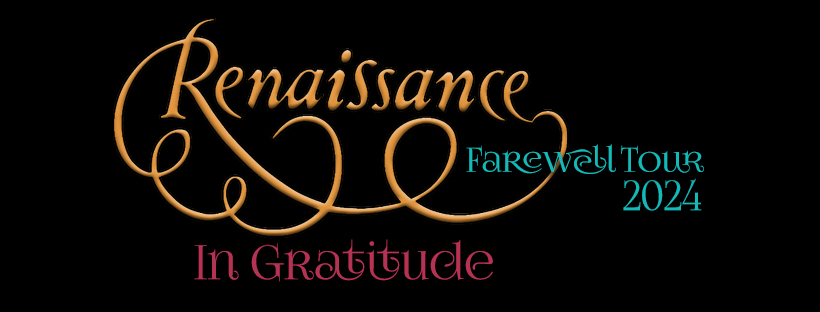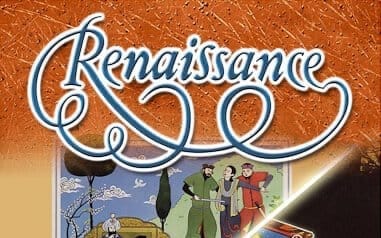This piece was originally published by All About Jazz on September 24, 2011
Since forming in 1969, Renaissance has amassed a relatively small but passionate fan base. The intense affinity for the band, especially its "classic" line-up (which spanned 1971-1980 and resulted in six studio sets plus one live album), appears not to have diminished with time. The 21st century incarnation of the band, featuring guitarist and principle composer Michael Dunford and vocalist extraordinaire Annie Haslam, have focused on expanding from the core, visiting the band's traditional strongholds in the North East of the United States as well as Eastern Canada, two territories that have always welcomed progressive bands with open arms.
While longtime fans would undoubtedly love to see a full reunion of the '70s version of the band, which in addition to Dunford and Haslam included, John Tout (keyboards), Jon Camp (bass), and Terence Sullivan (drums), the credibility and success of Renaissance truly lies with Dunford and Haslam, as well as the song selection for their Fall 2011 tour, which consists of complete performances of two of their most-regarded records: set one being Turn of the Cards (BTM/Sire, 1974) and set two it's follow-up, Scheherazade and Other Stories (BTM/Sire, 1975).
Michael Dunford's onstage placement, while low-key in demeanor, is deservedly at the center; for it was Dunford's compositional fusing of folk and classical that differentiated the band (and sadly may have limited its broader commercial appeal). It is Dunford's ardent strumming, alternating between six- and twelve-string guitars, that roots the epic songs at a human scale. Unlike many of the band's peers, the virtuosity of Renaissance is more in the song writing and arranging than in individual instrumental displays. Credit for this is Dunford's.
Annie Haslam's voice continues to astonish. The music of Renaissance is incredibly demanding on a vocalist, requiring dexterity, stamina, and power. Haslam displayed no loss of ability in any of these regards. To the contrary, Haslam began by bounding through the gymnastics in show-opener, "Running Hard," and hit every recognizable phrase, peak and valley through the second set closer, the 20-minute "Song of Scheherazade." There is no way the audience could have expected her voice to be in such fine form. Haslam clearly treats her voice like a lovingly well-regarded gift, one the audience is lucky to share in.
As those familiar with the band's output might expect, "Mother Russia," from Turn of the Cards, and "Ocean Gypsy" were definite highlights. "Things I Don't Understand," one of the band's most profound and poignant songs, was particularly moving.
Renaissance is benefiting from technology on two fronts: they are making a real effort to leverage email and social media to reach and mobilize their fans. This is key for them, as there are really no media outlets available for them to promote through. More importantly, their live show is aided greatly by the array of sounds available digitally. The inability to faithfully (or cost-effectively) reproduce their studio sound in a live setting led to the demise of the band as the '70s drew to a close. That issue no longer exists. They were able to reproduce the orchestration and instrumentation of every song throughout the evening with the inclusion of long-time Haslam collaborator Rave Tesar and young gun Jason Hart. They each helmed banks of keyboards (and in Hart's case a Mac) which yielded lush, organic-sounding strings, brass and winds without ever sounding artificial.
In a band where, more often than not, the bass guitar was the lead instrument, bassist David Keyes was a strong presence, never grandstanding. Drummer Frank Pagano managed the twists and turns of the tempo changes and dynamics with taste and ease.
The lone misstep in the show was the decision to perform a newer piece, "The Mystic and the Muse" as the sole encore number. A strong enough song in its own right, it was a bit anticlimactic after such a crowd-pleasing program. While the impulse to remain creative and vibrant is admirable and understandable, it might have been more effective to follow with perhaps one last "greatest hit" and leave the audience on a higher note.
While Renaissance did not reach the commercial heights of peers like the Yes, ELP or the Moody Blues, the fact that the group relied more on ornate instrumentation and less on synthesizers resulted in a much less dated sound. Renaissance created music that stands up incredibly well.
Set One: The Complete Turn of the Cards: Running Hard; I Think Of You; Things I Don't Understand; Black Flame; Cold Is Being; Mother Russia
Set Two: The Complete Scheherazade and Other Stories: Trip To The Fair; The Vultures Fly High; Ocean Gypsy; Song of Scheherazade
Encore: The Mystic and the Muse
Personnel: Annie Haslam: vocals; Michael Dunford: guitar, vocals; Rave Tesar: keyboards; Jason Hart: keyboards, vocals; Frank Pagano: drums, vocals.









Comments